This week marks the release of Steve McQueen’s Widows, and with that comes yet another fine performance by the Irish actor Colin Farrell. Like many handsome performers, they often face something of a battle in the early stages of their career – whereby they can cast based on their good looks, as though not considered to be truly great actors yet, without the range of roles to test their abilities and showcase their talents. Leo was the same, McConaughey fell into a dark, deep and depressing hole of romantic comedies, and only now is Robert Pattinson being taken seriously as a creative artist. Farrell is on that list, but if you look at the directors queuing up to collaborate with him, it’s clear to see he’s extremely highly thought of within the industry. We’ve compiled a list of his five finest performances to date. We’re afraid to report that Winter’s Tale AKA the worst film this side of the millennium, just missed out. Suppose nobody’s perfect.
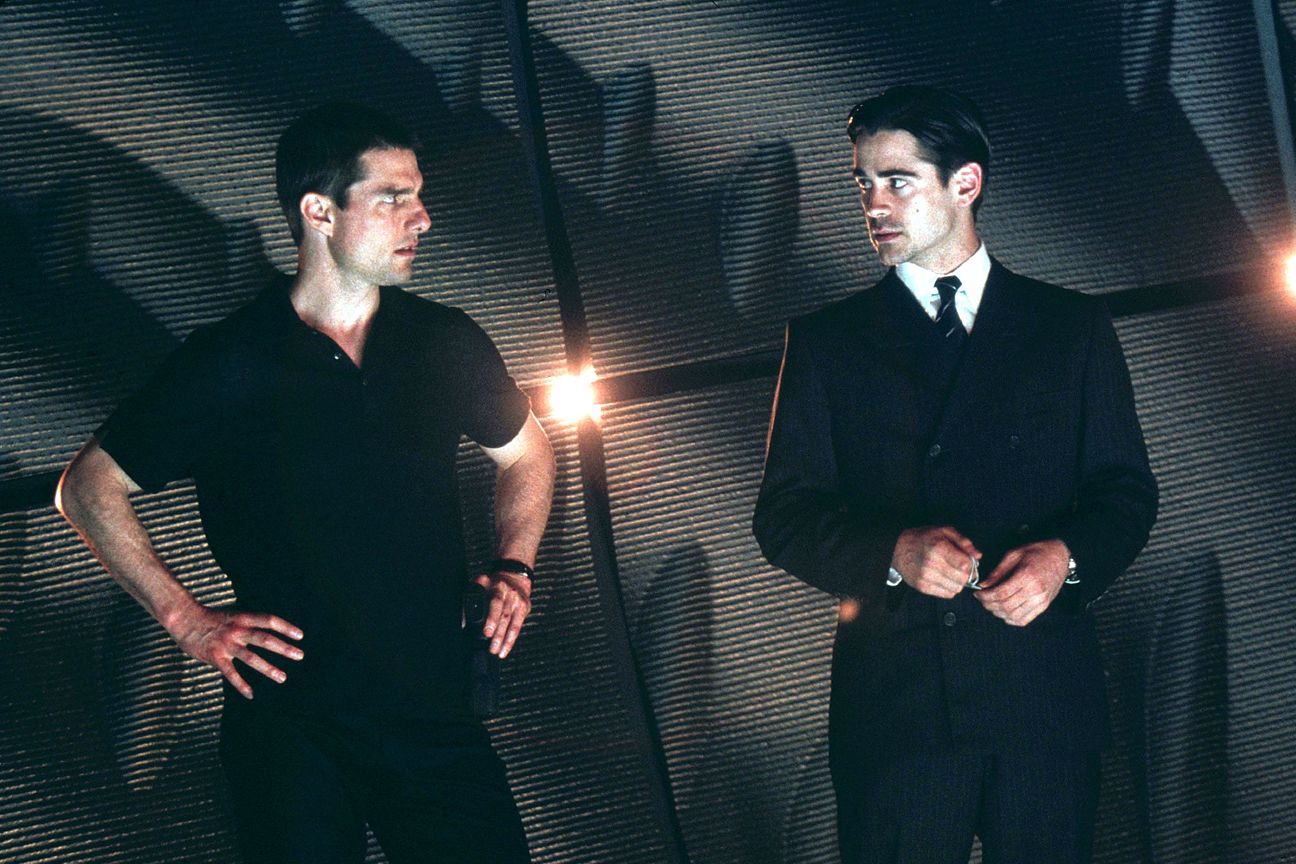
 Minority Report – This was Farrell’s first great movie, teaming up with Steve Spielberg himself in this ambitious action adventure, set in the not too distance future. Naturally, the majority of the plaudits went by way of Tom Cruise, but Farrell’s supporting turn cemented his status as a dependable force in major studio endeavours.
Minority Report – This was Farrell’s first great movie, teaming up with Steve Spielberg himself in this ambitious action adventure, set in the not too distance future. Naturally, the majority of the plaudits went by way of Tom Cruise, but Farrell’s supporting turn cemented his status as a dependable force in major studio endeavours.
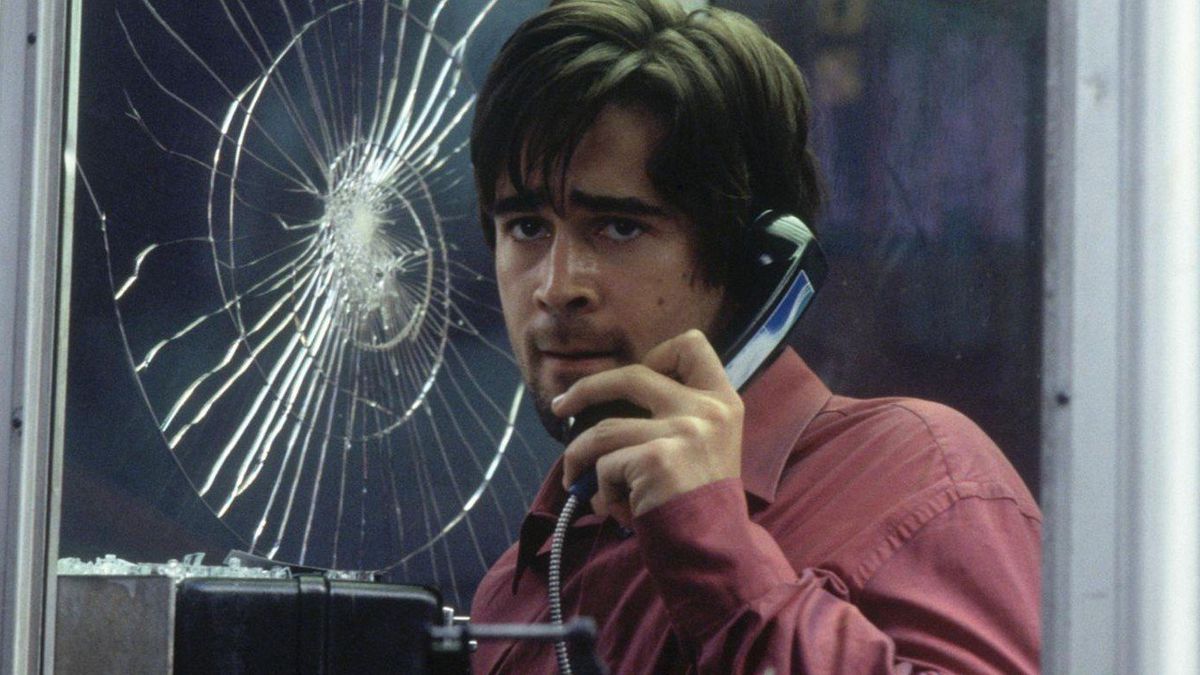
 Phone Booth – In the same year Farrell made Phone Booth, and here was another enterprising thriller, except this time the actor was the leading star. Not only that, but this film required so much more than a mere steady hand, as given the nature of this production – of a man trapped inside a phone booth, the audiences relied on a beguiling screen presence, as the simplistic layout meant he was on screen consistently. But here is an actor that can more than carry a role of this nature, always keeping the viewer captivated, and most vitally, on the edge of their seat, for while the hero of the piece, there’s a grit that contradicts the charm in Farrell, ensuring we never truly knew exactly where we stood.
Phone Booth – In the same year Farrell made Phone Booth, and here was another enterprising thriller, except this time the actor was the leading star. Not only that, but this film required so much more than a mere steady hand, as given the nature of this production – of a man trapped inside a phone booth, the audiences relied on a beguiling screen presence, as the simplistic layout meant he was on screen consistently. But here is an actor that can more than carry a role of this nature, always keeping the viewer captivated, and most vitally, on the edge of their seat, for while the hero of the piece, there’s a grit that contradicts the charm in Farrell, ensuring we never truly knew exactly where we stood.
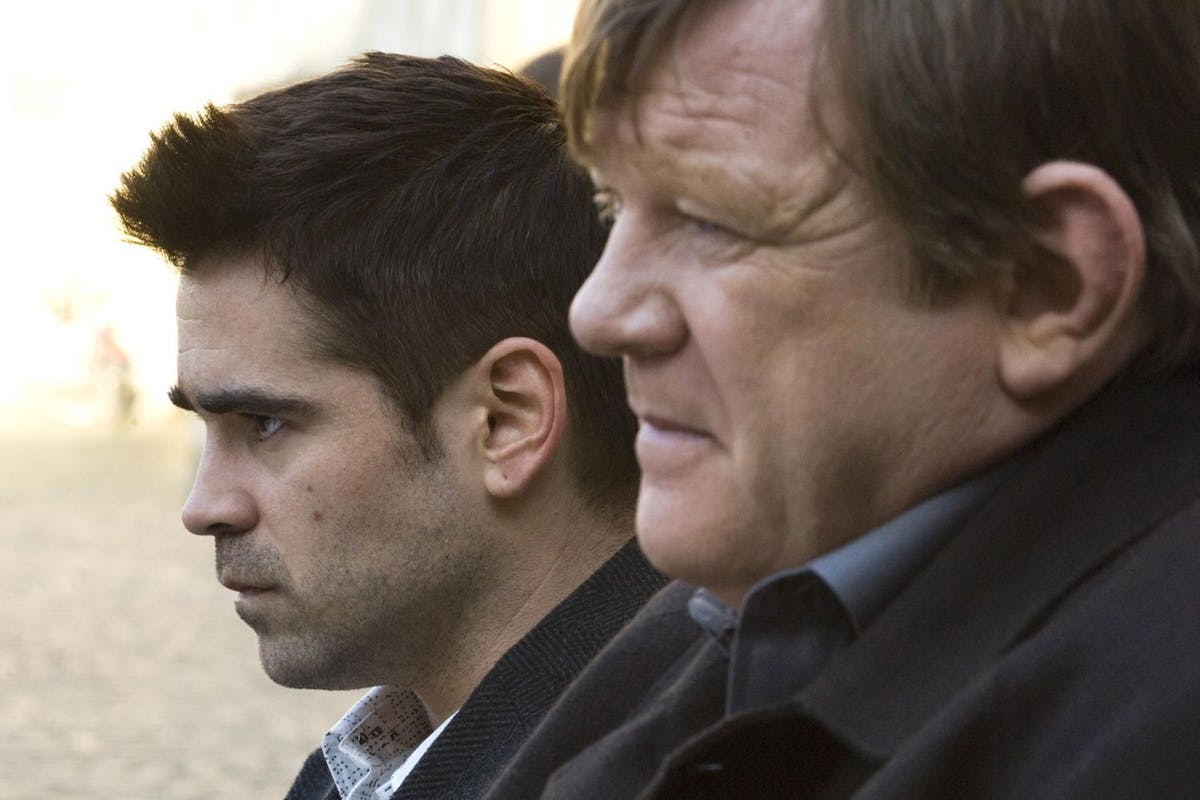
 In Bruges – Well, turns out Farrell can do comedy too. There’s a common misconception within cinema whereby comedy is almost seen as being quite easy, and yet it’s one of the hardest, more pressurising skills of them all. Alongside Brendan Gleeson in this exceptional Martin McDonagh film, Farrell displayed a skilled aptitude for the genre, with a droll, distinctively Irish wit that lent itself so well to the screenplay at hand. Again this is far from a one-dimensional genre film however, as the most prevalent theme to this comedy is the notion of death, and this is where he shines, again tapping in to that inner darkness and humanity which complimented the more surrealistic aspects of this film in an indelible manner.
In Bruges – Well, turns out Farrell can do comedy too. There’s a common misconception within cinema whereby comedy is almost seen as being quite easy, and yet it’s one of the hardest, more pressurising skills of them all. Alongside Brendan Gleeson in this exceptional Martin McDonagh film, Farrell displayed a skilled aptitude for the genre, with a droll, distinctively Irish wit that lent itself so well to the screenplay at hand. Again this is far from a one-dimensional genre film however, as the most prevalent theme to this comedy is the notion of death, and this is where he shines, again tapping in to that inner darkness and humanity which complimented the more surrealistic aspects of this film in an indelible manner.
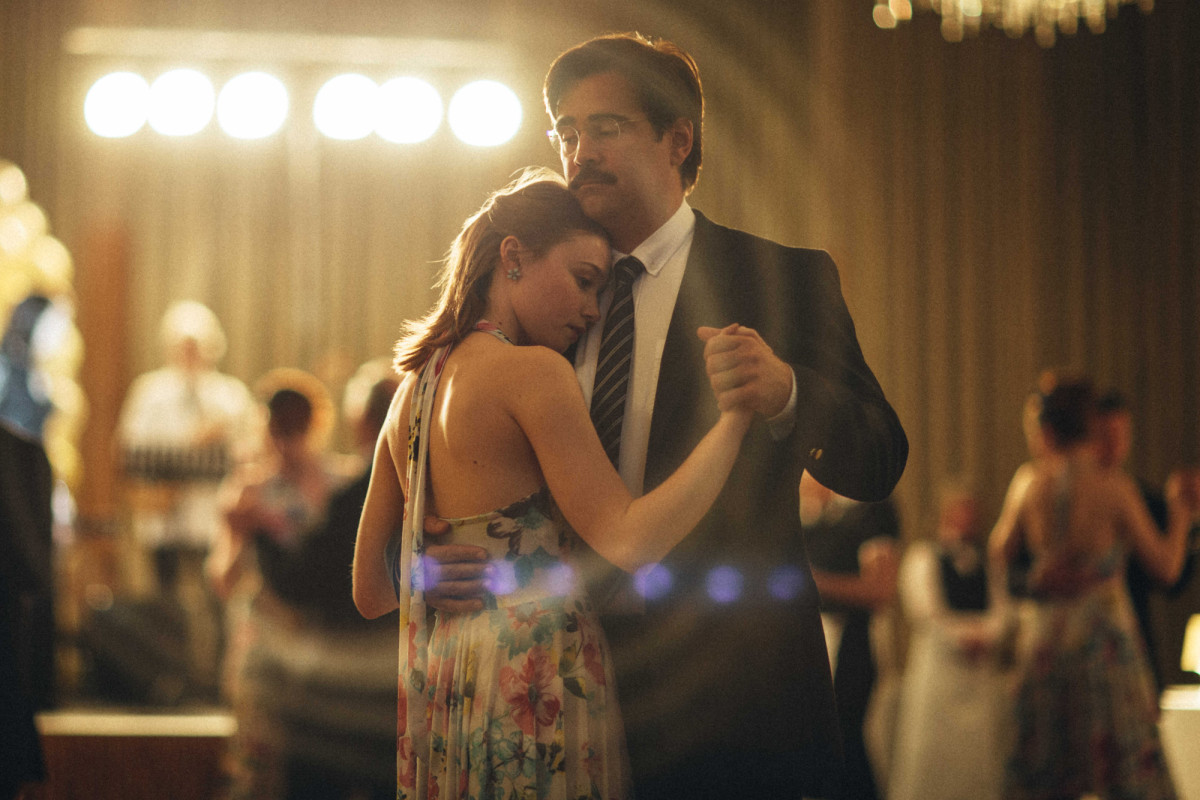
 The Lobster – If you want an example of black comedy, then you don’t have to look any further than The Lobster. Farrell had made a couple of dodgy choices (Winter’s Tale – it’s just so bad), but a small resurgence was underway, as he shone in Saving Mr. Banks, giving his fans a glimmer of his unique ability. The Lobster – by Greek auteur Yorgos Lanthimos – more than showcases that, and Farrell mastered the distinctive way the filmmakers likes his characters to converse. Stilted and awkward, it gives the film an otherworldly feel to it, but it steeped, and enriched, in humanity.
The Lobster – If you want an example of black comedy, then you don’t have to look any further than The Lobster. Farrell had made a couple of dodgy choices (Winter’s Tale – it’s just so bad), but a small resurgence was underway, as he shone in Saving Mr. Banks, giving his fans a glimmer of his unique ability. The Lobster – by Greek auteur Yorgos Lanthimos – more than showcases that, and Farrell mastered the distinctive way the filmmakers likes his characters to converse. Stilted and awkward, it gives the film an otherworldly feel to it, but it steeped, and enriched, in humanity.
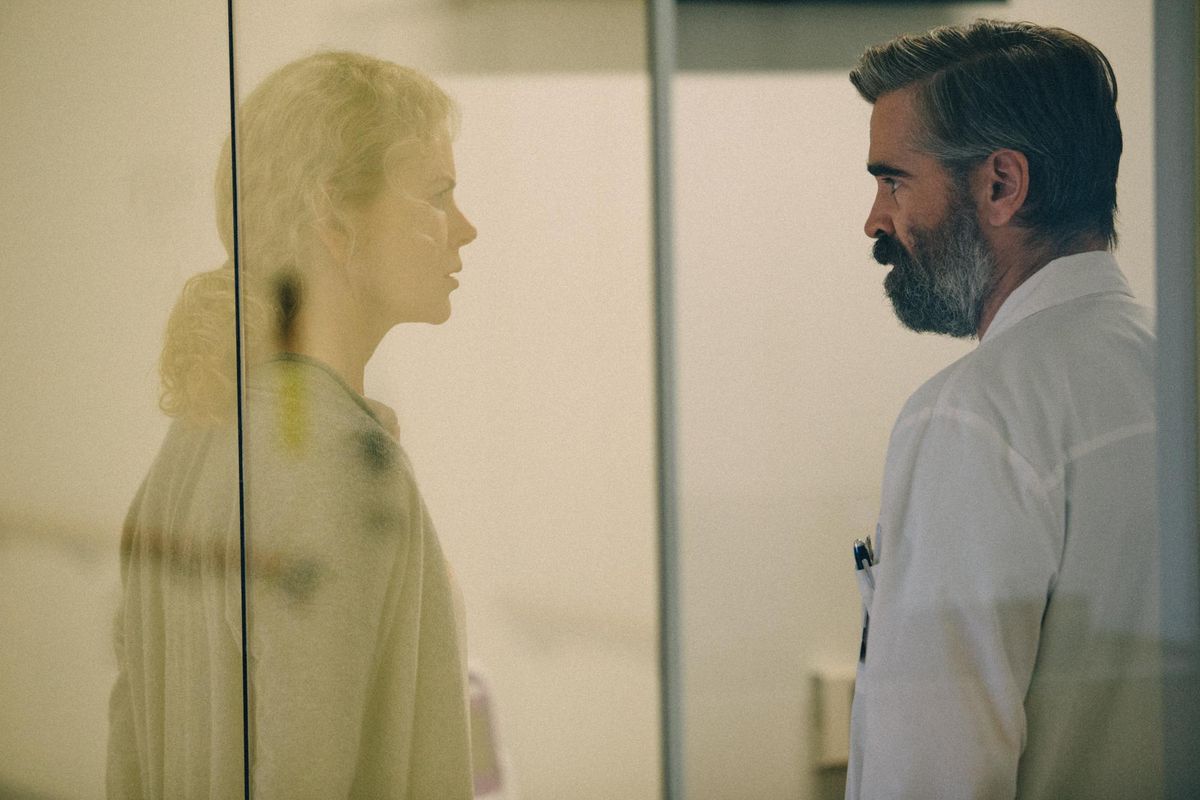
 The Killing of a Sacred Dear – After The Lobster, there was a sense that Lanthimos could’ve had his pick to work with any actor in the world, and yet he still returned to Farrell. It’s clear to see why, in what could arguably be the very finest performance of the actor’s career to date, in what is mysterious, fantastical thriller that is so immensely dark. Farrell’s charisma is plain to see however, and yet it comes wrapped up in a bleak world inhabited by bleak characters. Lanthimos returns soon with The Favourite, and while Farrell isn’t involved in that particular feature, we can only hope they collaborate again together one day, as a dream team we’re not ready to say goodbye to yet.
The Killing of a Sacred Dear – After The Lobster, there was a sense that Lanthimos could’ve had his pick to work with any actor in the world, and yet he still returned to Farrell. It’s clear to see why, in what could arguably be the very finest performance of the actor’s career to date, in what is mysterious, fantastical thriller that is so immensely dark. Farrell’s charisma is plain to see however, and yet it comes wrapped up in a bleak world inhabited by bleak characters. Lanthimos returns soon with The Favourite, and while Farrell isn’t involved in that particular feature, we can only hope they collaborate again together one day, as a dream team we’re not ready to say goodbye to yet.


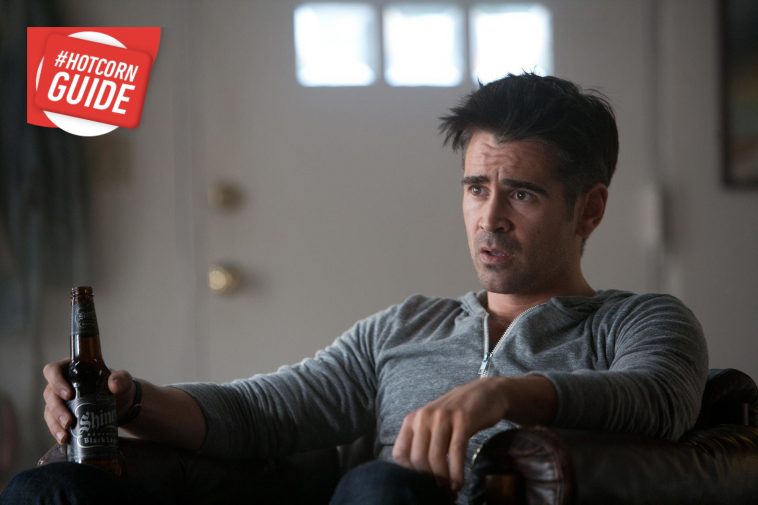

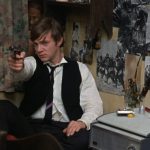




Leave a Comment